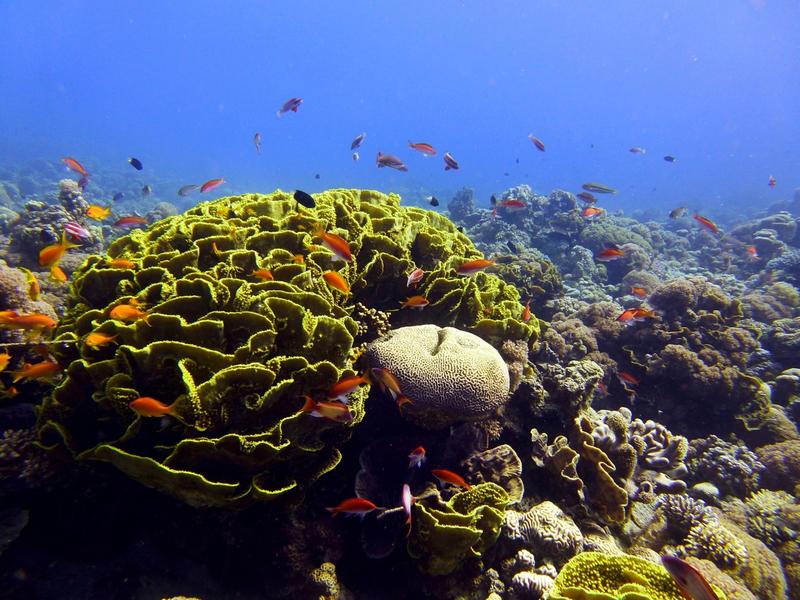

Underwater landscape at the study site in Aqaba, Jordan.
Foto: Ulisse Cardini
An entire reef habitat examined
In their study, the group of scientists collected a large dataset of physiological measurements for all key photosynthetic organisms and their associated bacteria in a Red Sea fringing reef in Aqaba (Jordan) over the course of the entire year 2013.
After collecting the field data, researchers extrapolated their results to the entire reef habitat using complex geospatial analyses. By doing so, they demonstrated that a specific group of bacteria is able to provide important nutrients to the entire reef habitat.
This is particularly the case when the organisms’ need of nutrients is highest, because of the lack of alternative nutrient sources.
Additionally, the research team found that the activity of these “nutrient-providing” bacteria is highly susceptible to environmental changes, indicating that climate change and other human-driven impacts may affect their important role in coral reefs, with negative repercussions for the health of the whole reef ecosystem.
Why this is important for us all
These findings are remarkable, because they may explain how coral reef ecosystems are able to thrive in very nutrient poor tropical waters. By helping photosynthetic organisms to grow on coral reefs, these bacteria enable these highly diverse and productive ecosystems to flourish. This, eventually, allows coral reefs to provide all the ecosystem goods and services like tourism and food that make them so important to humans.
Our impact on the natural environment is growing stronger every day, and the loss of coral reefs worldwide is increasing dramatically. As such, the authors hope that the data reported in their study will be useful for planning and evaluating the effects of management on coral reef ecosystems, helping to protect these important habitats and the goods and services that they provide.
Publication:
Cardini et al. Budget of primary production and dinitrogen fixation in a highly seasonal Red Sea coral reef. Ecosystems (in press)
Further information:
Prof. Dr. Christian Wild
University of Bremen
Faculty Biology / Chemistry
Marine Ecology
Phone. 0421 218 63367
E-mail: christian.wild@uni-bremen.de
Dr. Ulisse Cardini
University of Vienna
Department of Microbiology and Ecosystem Science
Division of Microbial Ecology
Phone: +43 677 61633148
E-mail: cardini@microbial-ecology.net












